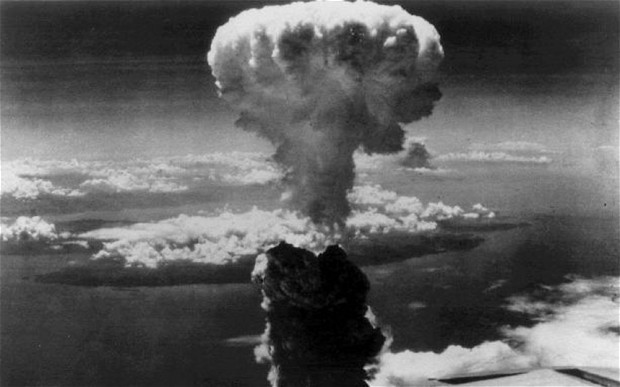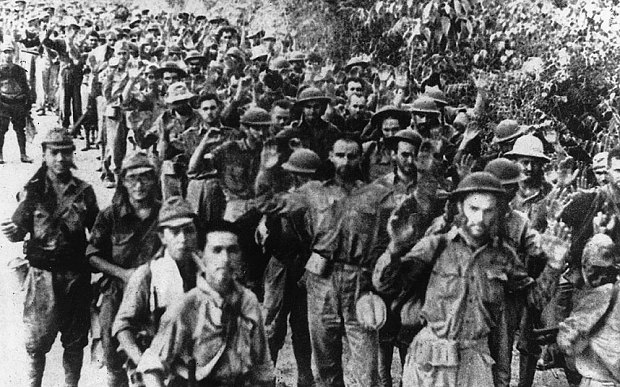| |
| |
| |
I’ve
lately had cause to remember what for me and countless others was one
of the most unforgettable moments of our lives. This came on August 6
1945, when we heard the quite unbelievable news that a whole city in faraway
Japan had been destroyed in a flash, by a single, mysterious new kind
of bomb, infinitely more powerful than anything the world had known before.
|
| |
| Three days
later came news of a second of these new “atomic” bombs, dropped precisely
70 years ago today, soon leading to the announcement that the war everyone
expected to last even for years to come was suddenly, miraculously over.
Over the following months we began to learn more about the unimaginable
horror which had been visited on the people of Hiroshima and Nagasaki. And
in recent days we have rightly been reminded of what it was like to live
through those terrible events which changed the world forever. |
| |
| In 1945, however,
we also soon heard much of the other side of the story, and how that same
appalling tragedy might have saved the lives of hundreds of thousands of
American and British servicemen who could well have died in the invasion
of Japan which would otherwise have been necessary to end the war. Only
more slowly did it come to light how the atom bombs had also saved the lives
of anything up to a million prisoners in camps across south-east Asia, whom
the fanatical Japanese commander, Marshal Terauchi, intended to massacre
if the allies landed on the Japanese mainland. |
| |
|
A
group of American soldiers captured by the Japanese during
the Battle of Java. Photo: Getty |
| |
| |
| There has been
no more eloquent and gripping account of all this than a bookcalled The
Night of the New Moon, published in 1970 by my late friend Laurens van der
Post, who had spent three years in some of those brutalcamps on Java. |
|
| |
| |
| That summer
he and his fellow senior officers learned something of Terauchi’s murderous
plans from a secret informant outside the camp. So they could scarcely believe
it when, on the night of August 6, their secret camp radio picked up from
the ether the incredible news of that first bomb on Hiroshima. |
| |
| Through the
days that followed they were more than ever convinced that they might all
be slaughtered at any moment – until van der Post, as a Japanese speaker,
was inexplicably summoned to the palatial headquarters of the island’s Japanese
high command. Still fearing the worst, he was astounded to be confronted
with a roomful of senior officers who, as he entered, solemnly bowed to
him. They informed this emaciated, bedraggled British colonel that they
wished him to take surrender of all the Japanese forces in Java. |
| |
| Van der Post
was only finally prompted to tell this extraordinary story 25 years later,
when, in a New York television studio, he found himself trying to explain
to an elderly survivor of Hiroshima how it was only because of all the horrors
the man had witnessed in 1945 that the lives of millions of others, including
his own, had been saved. |
| |
| |
| |
| |
| |
| |
| |
|



